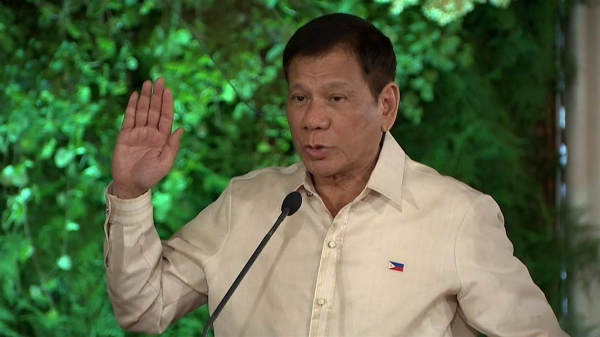At the International Criminal Court (ICC), registrar Herman Von Hebel this week announced that he is withdrawing his candidacy for a new five-year mandate. Von Hebel of the Netherlands had been severely criticized for his financial management of the Court. Twelve candidates remain in the running to succeed him, but a date has not yet been announced for the ICC judges to elect the new registrar.
Still on the ICC, Burundian President Pierre Nkurunziza, whose country’s withdrawal from the Court became effective at the end of 2017, now has someone following in his path. His equally controversial counterpart in the Philippines, Rodrigo Duterte, announced on March 14 that he was also pulling out of the ICC, which is looking into his murderous war on drugs.
The ICC, based in The Hague, announced at the beginning of February that it was opening a “preliminary examination” – to determine if there will be a full investigation – on Duterte’s anti-drug campaign. Since 2016, at least 4,000 suspected drug traffickers and users have been killed by the police, who have been encouraged by inflammatory talk from the country’s strongman. As in Burundi, the Philippines decision to pull out of the ICC does not stop the Court investigating.
Rodrigo Duterte is unfortunately not the only leader in this 21st century who is advocating crimes under the pretext of protecting citizens. In an article published on JusticeInfo.net, our editorial advisor Pierre Hazan looks at two recent nominations showing once again that “the Trump administration is clearly not in line with respect for human rights”. Mike Pompeo, a supporter of torture, has been nominated to the post of US Secretary of State and Gina Haspen, who directed a secret prison of the American intelligence services in Thailand where torture was used, is to head the CIA.
“In Europe, the wave of populism has not stopped rolling,” writes Hazan. “In central and eastern Europe, populists with a whiff of xenophobia have come to power in Poland, Hungary, Slovakia and the Czech Republic.”
For Hazan, who is also a professor at Neuchâtel University, “these worrying developments have heavy implications for transitional justice”. “Transitional Justice was born after the fall of the Berlin Wall in a climate of optimism carried on the third wave of democratization,” he continues. “A quarter of a century later, we are at the exact antipodes of this brief post-1989 era of optimism.”
On the African continent, JusticeInfo looked again this week at the Democratic Republic of Congo, where Lawyers without Borders (ASF) launched an urgent call for respect of public freedoms. In an interview with correspondent Claude Segenya, ASF’s director in the DRC Gilles Durdu denounces the violent repression of peaceful demonstrations, calling for respect of democracy and the Constitution. The lawyer also condemns the many attacks on human rights defenders in the DRC and accuses President Joseph Kabila’s regime of wanting to pass new laws repressing freedom in a context that is already extremely tense.







